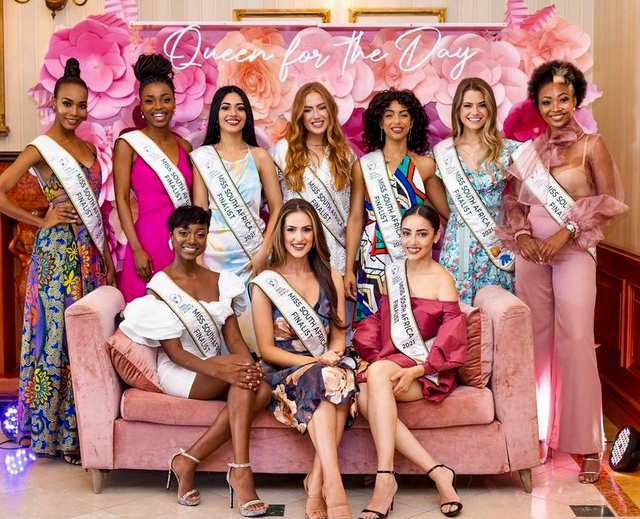
The Miss South Africa pageant, a prestigious competition celebrated for showcasing beauty, intelligence, and talent, has long been a symbol of grace and national pride. Founded in 1956, it aims to highlight South African women’s diverse beauty and achievements, offering a platform for social advocacy and personal growth. Contestants are typically chosen for their physical appearance and ability to contribute positively to society, embodying values of empowerment, leadership, and community service.
At its core, Miss South Africa is more than just a beauty contest. It celebrates South African diversity and culture, encouraging women to use their platforms for social impact.
Contestants are often involved in charitable work and advocacy, leveraging their visibility to address social issues and promote positive change.
However, this year’s competition has been overshadowed by significant controversy. The incident involving Chidimma Adetshina, a finalist of Nigerian descent, has sparked intense debate and criticism. The issues surrounding her withdrawal from the competition have exposed several underlying problems within the pageant.
Issues and Controversies of Miss South Africa 2024
The primary controversy began with allegations against Adetshinas mother, who was accused of fraud and identity theft. Although the South African Home Affairs Ministry’s investigation did not immediately confirm these claims, the suspicion created a cloud of uncertainty and led to Adetshina’s withdrawal from the competition. The handling of this situation raised questions about how the pageant manages controversies involving contestants’ personal lives.
Adetshina faced backlash largely due to her Nigerian heritage, highlighting a troubling aspect of nationalistic sentiment. The treatment of contestants based on their ethnic or national backgrounds challenges the pageant’s core values of inclusivity and diversity. This incident has drawn attention to how such competitions balance national pride with a commitment to representing a multicultural society.
The role of social media has intensified the controversy. Public figures, including South African singer Tyla, voiced their support for Adetshina, condemning her treatment as bullying. Tyla’s comments, however, led to a backlash against her, reflecting the polarized opinions surrounding the pageant. This situation underscores the complex relationship between public opinion and media representation in shaping the narrative of such events.
The criticisms related to Adetshina’s withdrawal also bring into question the pageant’s integrity. Allegations of favoritism and unfair treatment have surfaced, particularly concerning how contestants are judged and the transparency of the process. The focus on controversies rather than the contestants’ achievements has undermined the pageant’s credibility and raised concerns about the fairness of the competition.
As Miss South Africa moves forward, it faces the challenge of addressing these controversies while upholding its mission. Ensuring fairness through greater transparency in judging and handling controversies is crucial for rebuilding trust and credibility. Promoting inclusivity by embracing contestants from diverse backgrounds without prejudice is essential for maintaining the pageant’s values of diversity and representation. Additionally, managing the impact of social media and public criticism while staying true to the pageant’s mission requires a delicate balance.
In conclusion, while Miss South Africa 2024 aimed to celebrate beauty and empowerment, the controversies have highlighted significant issues that need to be addressed. The pageant must reflect on these challenges and strive to ensure that future events uphold its core values and provide a fair, inclusive platform for all participants.
Written By Veronica Emmanuel